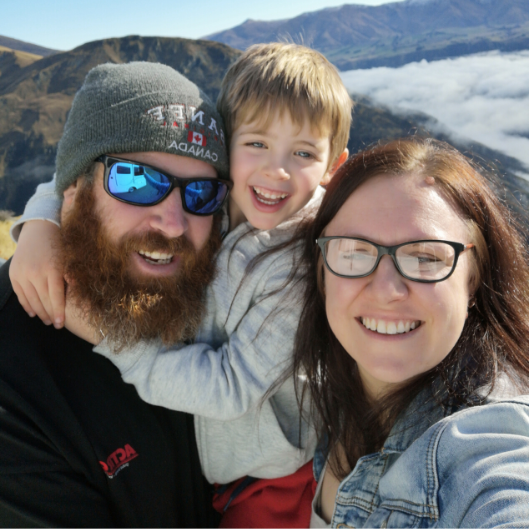Thu July, 9th 2020
For Nick Scullie the decision was, in the end, a simple one.
Offered a place in a clinical trial of a promising new drug to treat Huntington’s disease he knew he had to say yes.
“It was a little bit daunting, not knowing what was going to happen, but there is no treatment so you are not really left with any other choice at the moment,” he says.
The clinical trial which the 35-year-old from Bendigo agreed to participate in late last year is organised by Roche, the world’s largest biotech company.
Called GENERATION HD 1, the phase III trial involves 791 people in 18 countries who are showing the early symptoms of HD. The participants are receiving either the drug, called Tominersen, or a placebo.
Researchers hope the trial will demonstrate the drug’s ability to safely slow the progress of the disease and open the way for it to be approved by regulatory authorities and made publicly available.
In an earlier phase I/IIa trial, 46 people with early-stage HD received injections of Tominersen or a placebo for 13 weeks. That trial was judged a success with significant reductions of the mutant Huntingtin protein in the cerebrospinal fluid of participants that circulates along the spine and into the brain. That mutant protein is responsible for the damage to the brain that people with HD experience.
The phase III trial is now looking at the effectiveness and safety of the drug in a far larger group of people and attempting to answer the million-dollar question: does a reduction in the mutant protein lead to the progression of the disease slowing or even stopping?
Three years after becoming symptomatic, the trial is providing relief for Nick from the anxiety and despair he felt in the wake of his diagnosis.
“Before the trial I was in a very bad mental state because there was nothing that I knew of that was going to be on the horizon,” says Nick, who is a plumber by trade. “It felt like everything was going downhill too quickly.”
Along with his own future, Nick went into the trial thinking about his family and the devastating intergenerational impact of the disease on them. His mother, who is 60, has spent the last eight years in a nursing home. There is also his little brother, nine years younger than Nick, who is HD positive, and for whom he hopes treatment or even a cure could soon be available.
“My family has suffered from it pretty badly in the past so it is something I can do that will help bring some medical treatment for the future,” he says.
“I wouldn’t have been able to get through this tough period without the love and support of my fiancé Philippa and my six year old son Hamish, along with a really supportive family and friends.”
Participating in the two-year trial is not without its burdens. The drug is delivered via lumbar punctures every eight weeks. Clinicians also extract samples of his spinal fluid for analysis, which can be painful.
Each day Nick takes cognitive and motor skills tests and answers questions. The results are transmitted via a smart phone and watch which are also monitoring his condition. The tests are harder to deal with than the injections – a daily reminder that he has the disease and has to measure its impact.
There is also the possibility he may be one of the participants receiving a placebo rather than the drug.
However, the sense of hope and possibility being involved gives him outweighs the negatives. One doctor told Nick recently his symptoms had not increased as much as predicted in six months and his memory seemed better. “It could be just the way the disease is, it could be the drug working or the placebo effect we don’t know,” he says.
The challenge, he knows, is to stay positive and not think too far ahead. “Potentially, in the future, if it doesn’t work and it is deemed not a success then you sort of feel like – not that you have wasted two years – but it’s obviously a lot of heartache on me and my fiancé,” he says.
Huntington’s Victoria CEO Tammy Gardner praised Nick and the other participants for their willingness to take part in this research.
“We recognise and thank them for their participation,” she said. “It is a two year commitment and we know it isn’t easy. But there is real hope around the research that is taking place and if there are positive outcomes everybody in the community will benefit.”
Results of the trial are due in 2022. Roche will then make a decision on whether to apply to the relevant regulatory authorities to have it considered as an approved treatment for people with HD.
There is currently no treatment that can slow or halt the progress of HD. The drugs available are only designed to manage the symptoms of the disease.


